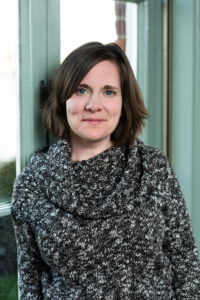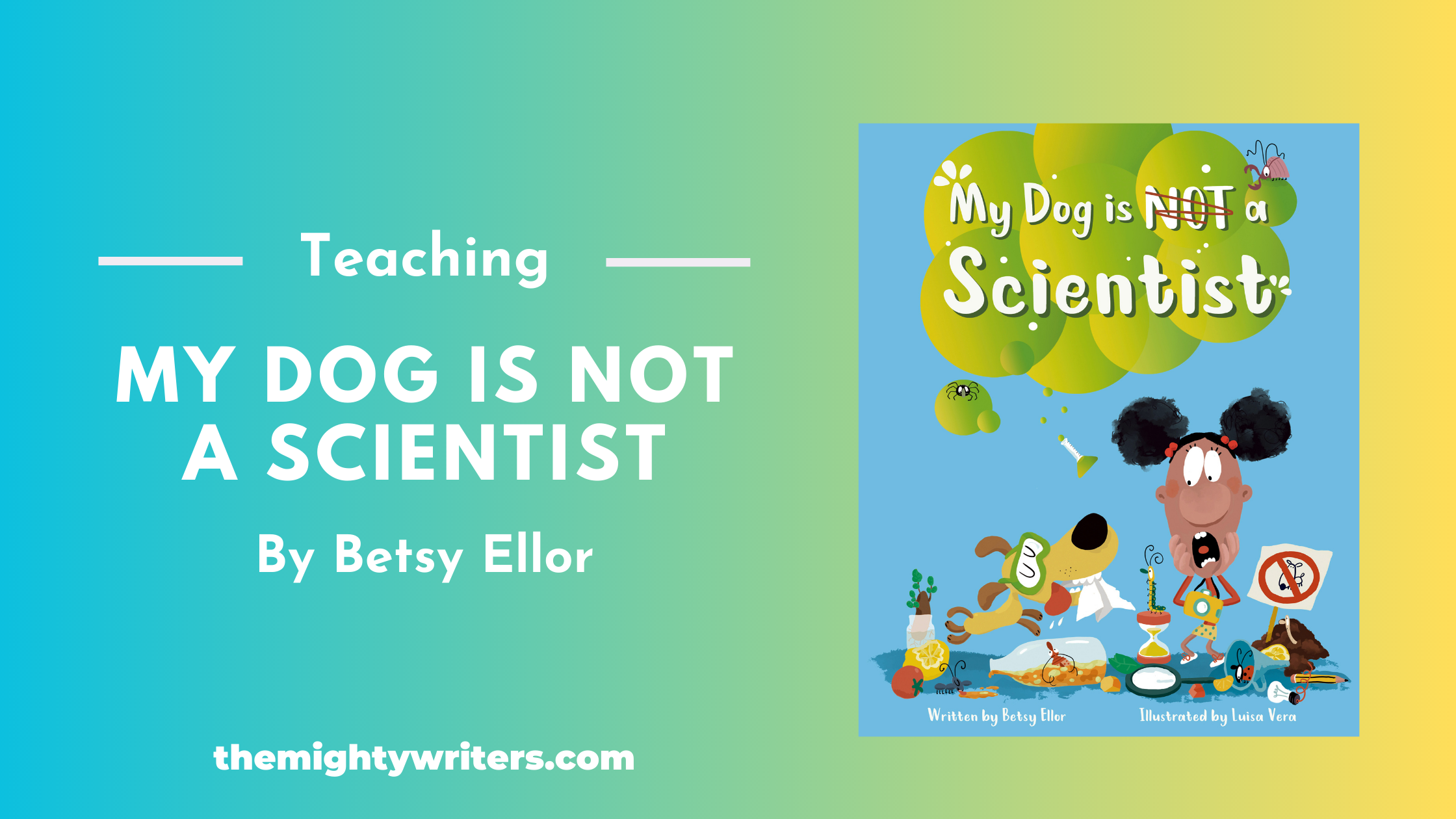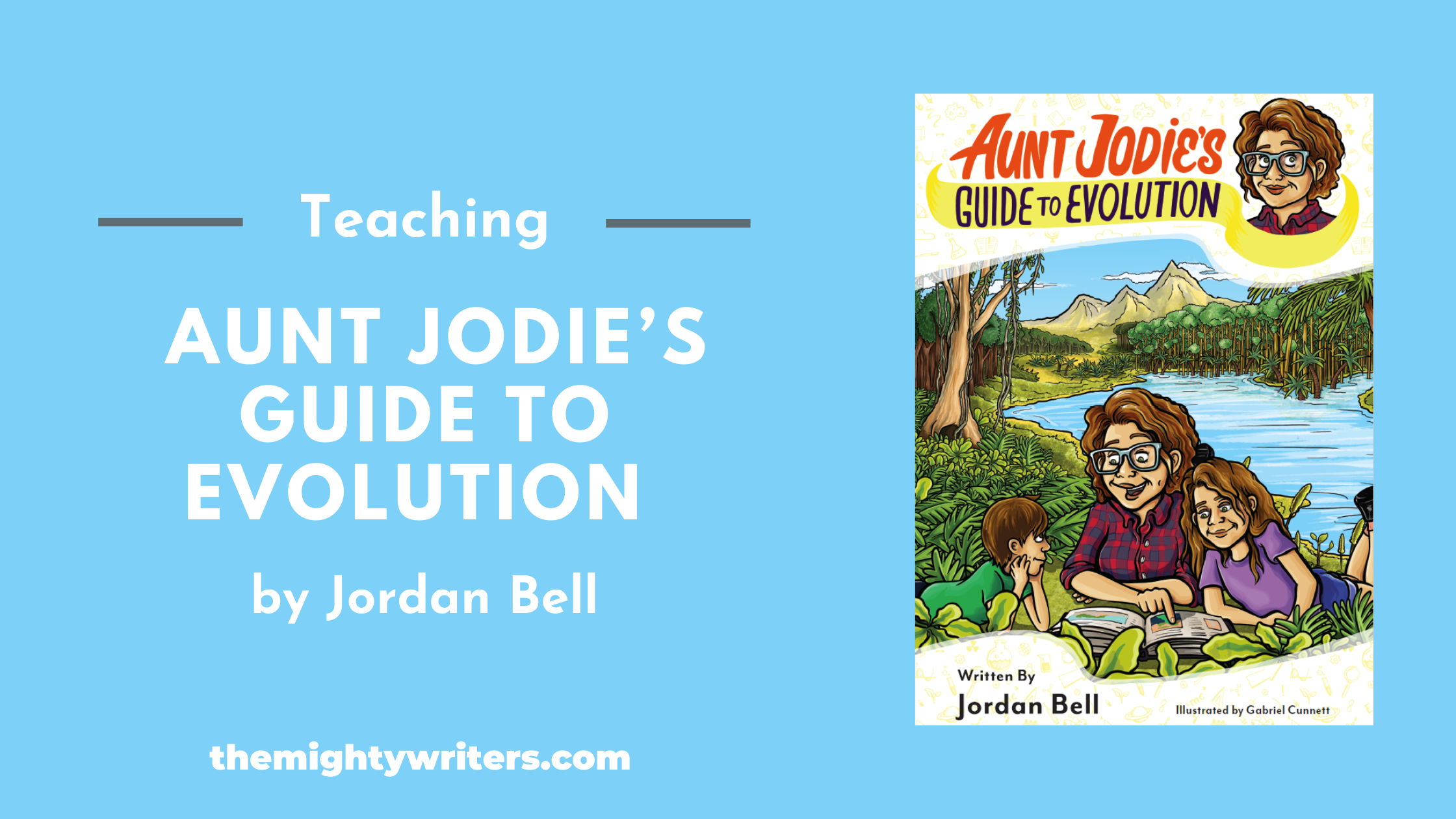A Note to the Reader
I am so excited to welcome Betsy Ellor to the blog to talk about her new book, My Dog is NOT a Scientist. Her book and life philosophy embraces messy and mistakes–two of my favorite things. Enjoy!
Teaching My Dog Is NOT A Scientist
Tell us about your book. What do you hope your young readers will take away from your book?
My Dog Is NOT A Scientist is a humorous look at the scientific method. It’s the story of Yara who is determined to win the science fair and her dog, Renzo, who keeps ruining all of her experiments. My goal in writing the book was to show readers that anyone can be a scientist if they follow their curiosity. Anyone, anywhere can ask questions and seek answers. The scientific method is a tool to help us find answers but it doesn’t matter if we apply it in a science lab or a bedroom floor. Being messy is fine. Being wrong is just the road to being right. Failure will happen, but failing is how scientists make their most creative and amazing discoveries.
What are your book’s hooks for teachers, librarians, and community leaders?
The book is ideal to kick off any unit on asking scientific questions and doing experiments. We all know science activities don’t always go as planned and that can be frustrating to young scientists. Because of the strong resilience storyline, it works really well to set up young people for those setbacks. In addition, the book pairs well with all the major Science holidays like Creativity and Innovation Day, and STEM/STEAM Day. It’s also great for dog or pet-related holidays since anyone who owns a dog will relate to Renzo’s loveable chaos.
Can you share an exercise or activity that teachers can do with students after they’ve read your book?
There are so many great STEM and SEL activities to follow up with:
- In the book, Yara does four common classroom experiments which teachers could recreate: the lemon-lightbulb experiment, making paper airplanes, growing grass, and categorizing bugs.
- If there isn’t time or space for an experiment, the back of the book includes a thought starters to get kids asking questions about their own world. Students can sit down with the list and come up with questions they might want to explore through the scientific method.
- Yara gets very frustrated and almost gives up before finally achieving her goal. Students can discuss times they’ve felt like giving up and how they got themselves out of that feeling.
- Eddie is the antagonist in the book. He is always there laughing when Yara fails. Yara repeatedly tells Eddie to go away. Eddie is a great discussion topic. Teachers can use Eddie as a tool to discuss what happens when we criticize others but I think he works even better when we discuss our inner-Eddies. All of us have an inner-Eddie who tells us all the things we’ll never be good at. After reading the book ask the class to write about times they’ve had an inner-Eddie. Then discuss how students can talk to their inner-Eddie to keep that voice from making them give up.
- Want more activities? Teachers can also download the free 30-page curriculum guide which includes literacy projects, SEL resilience activities, coloring pages, and of course experiment sheets.
What book pairs well with your book?
I love recommending Smithsonian 10-Minute Science Experiment as a pairing for this book. My Dog Is Not A Scientist is really meant to draw in new and/or unlikely scientists and get them started using science as part of their lives. This book of experiments is full of intentionally short, accessible experiments but ones that are certain to get kids’ curiosity pumping. Best of all, the items needed are things that most kids have around the house, so it makes science accessible for everyone.
 About the author. Betsy Ellor lives in a house near the beach where curiosity and chaos run wild. She divides her time between seeking out great stories and designing spaces like science labs, classrooms, and restaurants where others can cultivate their own curiosity. Her previous works include the anthology Heroic Care, and Sara Crewe, a family musical that’s been performed across the U.S.
About the author. Betsy Ellor lives in a house near the beach where curiosity and chaos run wild. She divides her time between seeking out great stories and designing spaces like science labs, classrooms, and restaurants where others can cultivate their own curiosity. Her previous works include the anthology Heroic Care, and Sara Crewe, a family musical that’s been performed across the U.S.



